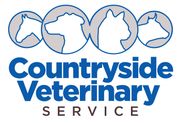
The decision to get your first dog is a significant one, bringing new joys and responsibilities, including finding a veterinarian. To succeed with your new furry friend, follow the tips below.
Tips for Success With Your First Dog
Preparation
Before you bring home the new dog, you’ll need to prepare the house. Consult with a veterinarian, the breeder, or a rescue facility about what type of food is appropriate and which basic grooming supplies you will need.
In addition to regular food and healthy treats, you’ll need a brush, dog shampoo, food and water bowls, toys, and bedding. Find an area in the kitchen or utility room to keep food bowls, and look for a quiet corner for the bed. If you live with others, let them know when the new dog will be coming home, and agree on consistent rules.
If you’re getting a puppy, have newspapers or a housebreaking mat ready for the breaking-in period. You may also want to invest in a crate and a baby gate to keep the dog within a certain area of the house until they adjust. Crates often double as a comfy, safe place for the pup to rest and sleep. You’ll also need a collar or harness and a leash.
Basic Training
 The first type of essential training is for those getting a puppy. Housebreaking can be frustrating, but with patience, love, and consistency, your little friend will soon learn. Follow these tips:
The first type of essential training is for those getting a puppy. Housebreaking can be frustrating, but with patience, love, and consistency, your little friend will soon learn. Follow these tips:
- Schedule: Have a consistent feeding schedule that corresponds with a regular potty schedule. Try to take your pup out at the same times every day, especially after meals.
- Cue Phrase: Decide on a verbal cue to encourage your pup to go, such as “potty time” or “let’s go potty.”
- Location: Some people start indoors, using a housebreaking mat or newspapers to guide the puppy toward the door gradually. Others go straight outside. Whatever you decide, be consistent with the location.
- Praise: When your puppy follows commands, praise them. Never punish a puppy for failing; it isn’t conducive to learning or bonding.
Beyond housebreaking, a basic obedience class is essential to keep your dog safe and manageable and to help establish a bond with them. Look for classes at rec centers, pet stores, or veterinary clinics.
Veterinarian Visits
Your new dog will need vaccinations, a baseline wellness checkup, and potentially spaying or neutering at a few months old. The veterinarian will recommend flea and tick prevention and deworming medicine, and they should answer any questions you have about your new dog.
For complete veterinary care in northeast Ohio and northwest Pennsylvania, choose Countryside Veterinary Service. They have five expertly staffed locations to choose from for preventive, diagnostic, and advanced services and emergency care. They also offer boarding and grooming. Visit the website to see locations, contact information, and a full range of offerings.
About the Business
Have a question? Ask the experts!
Send your question

